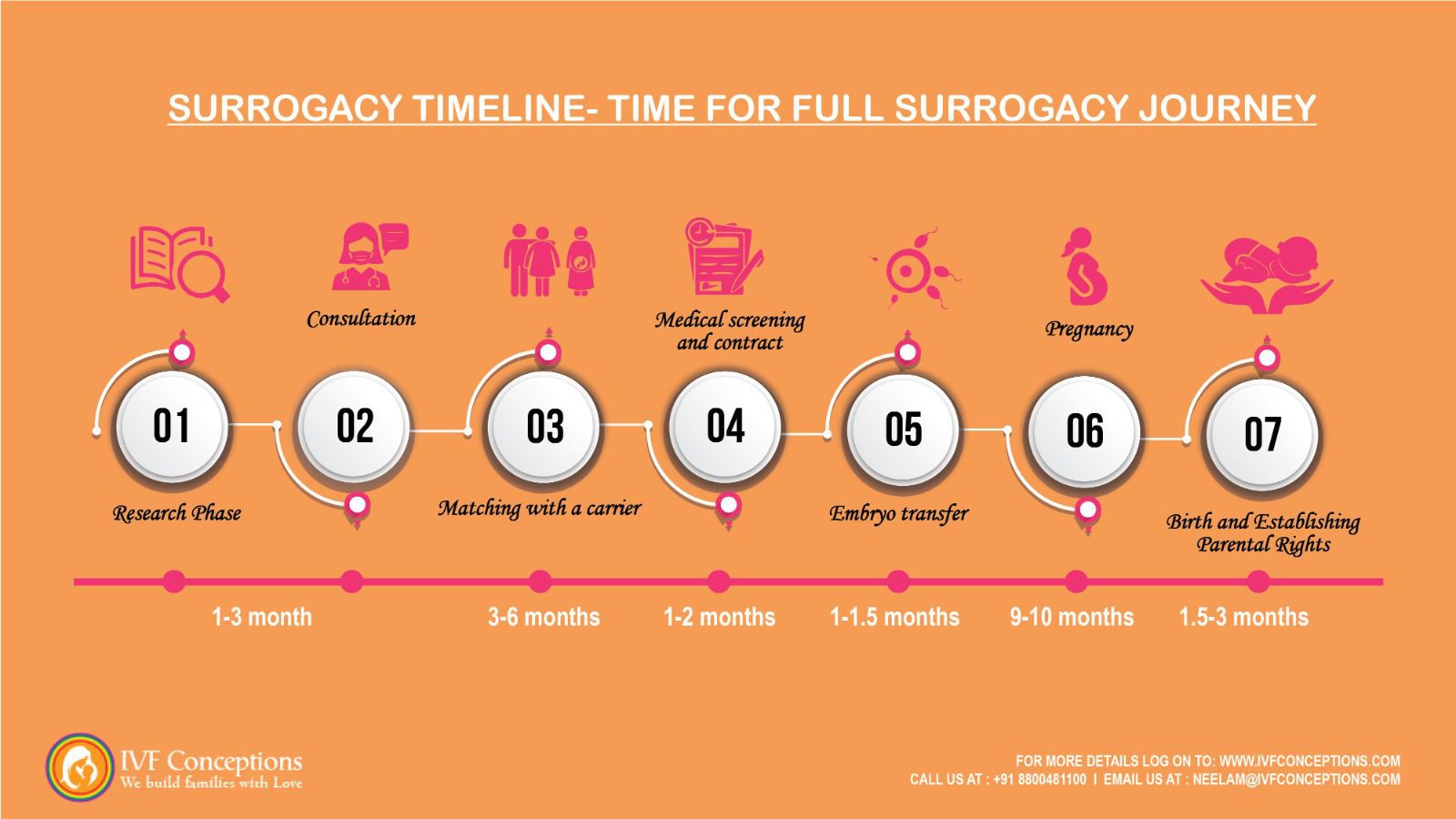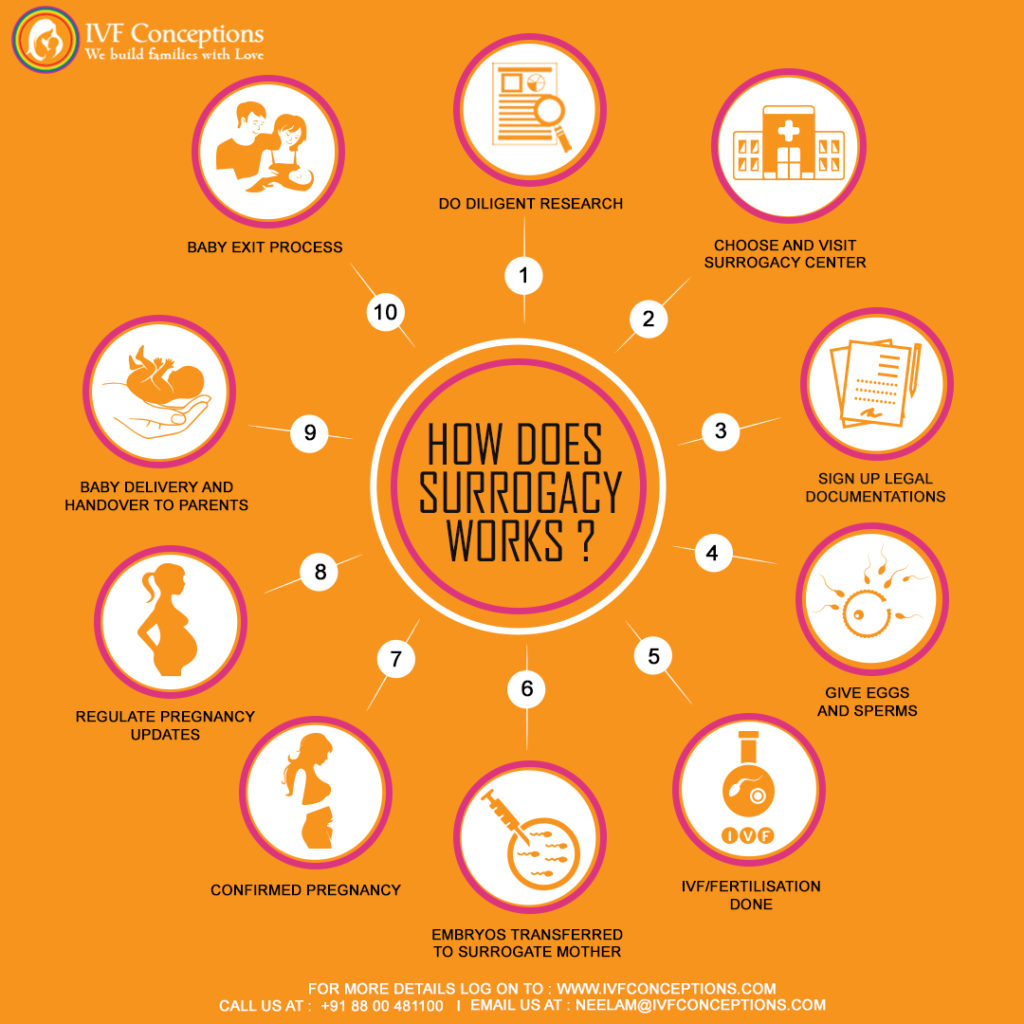
Gestational Surrogacy: The Best Option for Building Your Family
Infertility can be a challenging journey, but there are various options available for couples and individuals who desire to build a family. Among these options, gestational surrogacy has emerged as the most common and promising solution. With its efficiency and relatively shorter timeline compared to adoption, gestational surrogacy offers hope and the possibility of biological connection to parents who struggle with infertility.
If you are struggling with infertility, it is essential to remember that there are many ways to build a family, and gestational surrogacy is one of them.
What is Gestational Surrogacy?
Gestational surrogacy is a form of surrogacy where a woman, known as a gestational surrogate or carrier, carries and delivers a child for intended parents who are unable to conceive naturally. In this process, the surrogate mother is not genetically related to the baby she carries. The embryos used in gestational surrogacy are created through in vitro fertilization (IVF), where the sperm and eggs of the intended parents or donors are fertilized in a lab and then transferred to the surrogate mother’s uterus.
Gestational surrogacy is an incredibly exhaustive, long bureaucratic process. It has gained immense popularity worldwide, especially in Western countries over adoption. It might take a couple of years to get a child through adoption. On the other hand, surrogacy only takes about fourteen months to twenty-four months to be completed.
Frankly, surrogacy has become a controversial yet popular treatment for infertility. In this infertility treatment, a woman carries and delivers a baby for childless couples. This woman is known as the surrogate mother, and she might even provide the egg (as is the case in traditional surrogacy), or she may only carry the child that has been conceived by another woman’s eggs (as is the case with gestational surrogacy).
According to the surrogacy agreement, the surrogate mother waives all parental rights and gives the baby immediately after delivery to the intended parents.
It not just allows parents to take full control of their reproductive options, but also to create families sharing the same genetics.
 Broadly, there are two types of surrogacy:
Broadly, there are two types of surrogacy:
Traditional surrogacy
Gestational surrogacy
The traditional surrogacy type makes use of eggs and natural insemination of the surrogate mother to conceive successfully. The traditional surrogate option is not commonly used.
On the other hand, gestational surrogacy is done through in vitro fertilization (IVF). The sperm and eggs are taken from the father and the intended mother eggs or donor eggs are used to create embryos. Then embryo transfer is done in the surrogate mother.
As surrogacy continues to be popular, especially gestational surrogacy, below given is everything that you need to know before hiring a gestational surrogate.
In the gestational surrogacy process, embryos are created through IVF (in vitro fertilization) using the intended father’s sperm and donor egg or intended parents, then embryos transfer to the surrogate mother. The medical procedure is done with the help of a fertility specialist and comes under Assisted Reproduction Techniques (ART).
A gestational surrogacy arrangement is sometimes also referred to as full surrogacy or host surrogacy. In most cases, at least one or both parents are genetically related to the baby. That is what makes it less complicated when it comes to legislation than other forms of surrogacy since second-parent or stepparent is not required in this type of surrogacy.
The very 1st successful procedure of gestational surrogacy took place in 1985. Between 1999 and 2013, approximately 2% of all Assisted Reproductive Technology cycles made use of a gestational carrier. The number of surrogate mothers also increased from 727 in 1999 to 3,432 in 2013.
 Glossary of surrogacy-related terms you need to be familiar with
Glossary of surrogacy-related terms you need to be familiar with
• Intended parents: Intended parents are those who will become the legal parents of the child born through surrogacy. In most cases, the intended father is both the sperm donor and the child’s legal father.
The intended mother’s legal status is less specific, especially in countries that do not have any particular legislation. Upon the birth of the child, the birth mother’s name might be put on the child’s birth certificate, and by default, she becomes the legal mother. In such a case, the intended mother will have to complete a court process to get a parental right and remove the surrogate as the legal mother.
• Surrogate mother: Also known as a gestational carrier, she is a woman who agrees to carry a pregnancy for the intended parents. As part of the surrogate agreement, she gives complete custody and parentage to the intended parents.
• In vitro fertilization or IVF: IVF is a clinical procedure where the egg is fertilized in the lab and developed into an embryo before implantation into the surrogate mother. If needed, genetic testing is done to rule out abnormalities in the baby.
Characteristics and outcomes of gestational carrier cycles ( Source: CDC)
• Gestational carrier cycles between 1999 and 2013 resulted in 13,380 deliveries and the birth of 18,400 kids. There is data showing that 9,819 of these infants were twins, triplets, and other higher multiples.
• About 16% of intended parents using a gestational carrier were not residents of the USA.
• Intended parents using a gestational carrier were older parents while the gestational carrier was less than thirty-five years of age.
• Gestational carrier cycles’ rate of implantation, pregnancy, and also live births were higher than non-gestational carrier cycles.
Who Might Consider Surrogacy?
• Hopeful single parents who wish to have a biological child
• Couples who are struggling with infertility and need egg donation due to higher age/other medical conditions.
• Same-sex couples want to become parents
• Individuals and couples who do not wish to have a genetic link between their child and the surrogate
• Any female who is not able to safely carry a pregnancy to term
 How to Find A Surrogate Mother?
How to Find A Surrogate Mother?
By far finding the surrogate mother is one of the most important but toughest jobs for an intended parent. Any parenthood journey via surrogacy starts with finding a suitable surrogate mother who is just perfect for you. It is not an easy task but still achievable, with the right help.
#1. Use a surrogacy agency to find a surrogate mother:
You can use a surrogacy agency to find a surrogate. The agency’s responsibility is to help hopeful parents find the perfect surrogate and make all the arrangements. But you need to pay a hefty surrogacy agency fee to get their help for a full surrogacy process.
#2. Use a friend or family member as a surrogate mother:
If you do not want to go through a surrogacy agency, you can ask a relative or friend to be a surrogate for you. Read here, how much does surrogacy cost with a family/friend/ relative as a surrogate?
#3. Explore Online resources to select a suitable surrogate mother:
With extensive internet use within society, prospective intended parents can find the surrogate in various online platforms.
In the same way, a surrogate mother looking for an intended parent can look out for parents within the online community. There are surrogacy directories that make it possible to find each other.
However, you have to make sure that the surrogate is of legal age and has already given birth to one healthy child. That ensures that the surrogate understands the medical risks associated with pregnancy and childbirth, along with the emotional bonding with a newborn.
The Gestational Surrogacy Process
There are a few steps that couples have to go through to ensure that the surrogacy process is as smooth and safe as possible.
Here’s a rundown of the different phases.
• Screening phase
The first step is to choose a gestational carrier. Once you have made your choice, either from your source or a surrogate agency, the surrogate is going to undergo a thorough screening process.
That includes screening for infectious diseases, compatibility, psychological capacity, and overall well-being and health.
All the parties involved will be asked to sign a form of consent concerning pre-conception, pre-birth, and post-birth processes, which will include parentage on behalf of the intended parents. That makes sure that the intended parents and surrogates are both fully aware and in agreement with the procedure. The surrogacy contract contains the terms and conditions as agreed by both parties.
• Implantation phase
The gestational carrier is given medication before the process of IVF to enhance the chances of successful conception.
When the intended mother or egg donor follicles mature, her eggs will be removed from her ovaries to be fertilized in the laboratory with either the donor’s or the intended father’s sperm. The embryos will continue to develop in the laboratory for three to five days. After that, it will be transferred to the surrogate mother’s uterus for implantation.
Since surrogacy relies on fertility treatment, known as IVF, the rates of its success vary by the quantity and quality of the eggs, besides other factors.
A study conducted by the Society for Assisted Reproductive Technology in 2015 revealed that the rate of success is 50.2% when fresh donor eggs are used, and the success percentage is 38.3 when frozen donor eggs are used.
• Pregnancy phase
The process of IVF is completed, and there is a positive pregnancy test confirmed. The surrogate begins her pregnancy journey, where she will be needed to follow the requirements of the intended parents that related to the baby’s wellness and health.
That includes the doctor’s appointment, diet, and regimens recommended by the intended parents. The surrogate mother is then compensated for her effort and time accordingly or as per the agreement.
• Baby birth
The surrogacy baby birth is like any other natural pregnancy birth. It is possible for a commissioning parent to be part of the birthing process. It will make them more involved and feel more emotionally connected with the baby.
Unlike natural pregnancy, a surrogacy process can have lots of work after a baby’s birth. Your reproductive layer can help you set up a pre-birth order or post-birth control as per your specific case.
In case you are doing a cross-border surrogacy process. Approach a local surrogacy agency that can help you in getting a baby’s birth certificate. With the help of a local lawyer or even without a lawyer, you can apply for citizenship and travel documents for newborn babies.
How Much Does Gestational Surrogacy Cost?
The gestational surrogacy costs vary as it depends on various factors. For instance, if you have asked your relative or friend to become a surrogate for you, she might not take a surrogate mother compensation fee for carrying your child.
But, you will have to pay for all the other expenses related to IVF procedures antenatal pregnancy care, and childbirth.
So, overall surrogacy costs can be low, but still, gestational surrogacy is not an easy financial enterprise. The standard surrogate mother compensation is in the range of $35,000 to $60,000. So, if you are using a friend as a surrogate mother, you can save this fee.
However, on average, gestational surrogacy costs approximately $115,000 to $150,000 in the USA.
Read more:
How to reduce surrogacy costs?
Top 4 cheapest countries for surrogacy
What Is the Success Rate of Gestational Surrogacy?
Surrogacy success rates are 95% depending upon many factors. Compared to other fertility treatments, it has a much higher success rate. That mainly depends on the health and age of the surrogate mother and advanced reproductive medicine.
Using gestational surrogacy gives a chance to the fertility specialty to choose a lady who has an excellent reproductive history and is healthy enough to carry a surrogacy pregnancy to term. Besides this, a significant advancement in medical technology gives better chances of conception than before.
In case of male infertility, possible to use donor sperm.
FAQ for Gestational Surrogacy:
Gestational surrogacy is when another person, known as a gestational surrogate or carrier, carries and delivers a child for another couple or person. The gestational surrogate does not provide the egg used for fertilization, and the child is not genetically related to the carrier.
There are two types of surrogacy: gestational and traditional. In gestational surrogacy, the carrier is not genetically related to the fetus. The intended parent’s egg or a donor egg is used, and the gestational surrogate carries and gives birth to the baby. This type of surrogacy is less legally complicated.
Many people or couples choose gestational surrogacy to grow their families. It may be needed when an intended parent is infertile due to a problem with their uterus, they can’t be pregnant or give birth due to a medical condition, or they are biologically incapable of conceiving or bearing a child.
The process starts with selecting a gestational carrier. In gestational surrogacy, the embryo is created through in vitro fertilization (IVF) using the eggs and sperm of the intended parents or donors. The created embryo is then transferred to the surrogate who carries the pregnancy.
There are several methods to find a gestational surrogate: Surrogacy Agencies: Working with a surrogacy agency can help you find a suitable gestational surrogate. These agencies have experience in matching intended parents with surrogates and handling the necessary arrangements. Personal Connections: You can also consider asking someone you know to be your gestational surrogate. This option requires careful consideration and open communication with the potential surrogate.
The legal rights of the gestational surrogate may vary depending on the jurisdiction. In many cases, the intended parents have legal rights to the child, and the gestational surrogate does not retain parental rights. It’s essential to consult with legal professionals and ensure all necessary legal agreements are in place.
Conclusion
The gestational surrogacy journey has several advantages that make it a popular choice to have a baby.
• The ability to have your child biologically or through in vitro fertilization
• The option of gender testing and selection on the embryo before the implantation
• The ability to choose the right surrogate who is emotionally and physically prepared to carry your child or children
• Allows intended parents to have a genetic tie with their child
IVF Conceptions has been guiding and assisting intended parents since 2010 to build their families via gestational surrogacy. Get in touch now for a free consultation to have the best surrogacy option for you.
Our team has over 13 years of experience facilitating surrogacy arrangements, egg donation, and serving as an advocacy resource for infertile couples and LGBTQ individuals seeking to build families.
Our founder and chief surrogacy consultant, Neelam Chhagani, passionately helps couples struggling with fertility challenges. Since starting our surrogacy consulting agency in 2013, we’ve helped welcome over 500 babies for intended parents nationwide.
Our team includes experts from diverse backgrounds with leading reproductive attorneys, professionally trained top fertility doctors, former surrogacy case managers, experienced and kind surrogate mother and egg donor coordinators, mental health professionals specializing in infertility counseling, and a logistic support team to assist you in your chosen surrogacy country.
Additional resources:
Blogs for fertility and pregnancy

 Glossary of surrogacy-related terms
Glossary of surrogacy-related terms How to Find A Surrogate Mother?
How to Find A Surrogate Mother?

